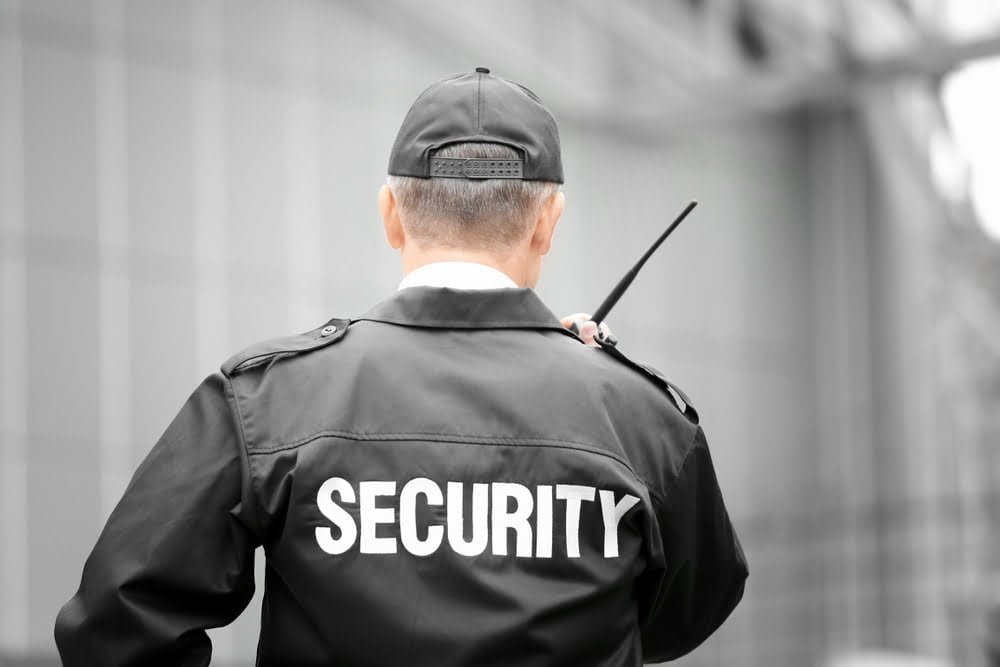When we step into a retail store, we often take for granted the sense of security and safety that surrounds us. However, behind the scenes, there are dedicated individuals working tirelessly to ensure our well-being. Among them are the unsung heroes of the retail industry – the retail security guards. These professionals play a vital role in protecting the store, its employees, and its customers from various risks, including theft, vandalism, and other criminal activities.
A retail security guard is an essential figure responsible for maintaining safety and security in retail establishments. They are trained professionals who protect the store, its employees, and its customers from various risks, including theft, vandalism, and other criminal activities. Their presence helps deter potential criminals and ensures a safe shopping environment for everyone involved.
In this blog, we will delve into the daily experiences of a retail security guard, shedding light on their responsibilities, routines, and challenge. Also, the blog will focus on how professional security guards services are crucial.

Morning Routine
The morning routine of a retail security guard typically begins with their arrival at the store. They must go through check-in procedures, which often involve signing in, verifying identification, and obtaining any necessary equipment, such as radios, keys, or handheld devices. This initial step ensures that all security personnel are accounted for and ready to commence their duties.
Reviewing the daily schedule and assignments
Once the security guard has checked in, they review the daily schedule and assignments. This includes familiarizing themselves with the store’s opening and closing times, any special events or promotions scheduled for the day, and the specific areas they are responsible for patrolling and monitoring. Having a clear understanding of their tasks helps them prioritize their efforts and allocate their time efficiently.
Briefing with the team and communication protocols
To ensure effective coordination and communication, security guards typically participate in a briefing with the rest of the security team. During this meeting, they discuss any relevant information from the previous shift, share updates on potential security risks, and address any concerns or questions. They also review communication protocols, such as radio codes or emergency signals, to facilitate seamless interaction between team members throughout the day.
Before the store opens its doors to the public, the retail security guard ensures that all necessary equipment is in place. This may involve checking the functionality of alarm systems, surveillance cameras, and other security devices. By confirming that the equipment is operational and positioned strategically, they enhance the store’s overall security infrastructure
Store Opening Procedures
As part of their responsibilities, retail security guards conduct a thorough inspection of the store premises before it opens for business. They meticulously examine all areas, including entrances, exits, storage rooms, and restrooms, to identify any signs of tampering, damage, or potential security vulnerabilities. This inspection enables them to proactively address any issues and mitigate risks before customers arrive.
Checking alarm systems and surveillance cameras
To ensure optimal security, the retail security guard checks the functionality of alarm systems and surveillance cameras. They verify that all sensors are working properly and that the cameras provide clear visibility of critical areas. This step helps identify any potential malfunctions or blind spots that need immediate attention. By ensuring the proper functioning of these security measures, the guard enhances the store’s ability to detect and respond to suspicious activities.
Assisting with crowd control during busy opening hours
During the busy opening hours, retail security guards play a crucial role in managing crowd control. They ensure that customers enter the store in an orderly manner, preventing any situations that could lead to accidents or conflicts. By maintaining a visible presence and providing guidance, they help create a positive shopping experience for customers while simultaneously deterring potential criminal activities.
Reporting Incidents
One of the key responsibilities of a retail security guard is to report incidents promptly and accurately. Whether it’s a theft, vandalism, or any other security-related issue, documenting the incident is crucial for several reasons. First and foremost, accurate incident reports provide a detailed account of what transpired, which can be valuable for investigations, insurance claims, or legal proceedings. By documenting incidents, retail security guards contribute to the overall safety and security of the store.
Elements of an effective incident report
When reporting incidents, retail security guards typically include essential elements to ensure comprehensive documentation. These elements may include:
- Date, time, and location of the incident: Providing specific details about when and where the incident occurred helps establish a timeline and context for the event.
- Description of the incident: This section outlines the nature of the incident, including what happened, who was involved, and any relevant details or observations. The description should be objective, factual, and avoid assumptions or personal opinions.
- Witnesses and involved parties: Identifying witnesses and individuals involved in the incident is crucial for potential follow-up actions or investigations. Names, contact information, and statements should be included whenever possible.
- Actions taken: Retail security guards should document any actions they took in response to the incident. This may include contacting law enforcement, providing medical assistance, or initiating emergency protocols.
- Evidence or supporting documentation: If there is any physical evidence, such as video footage, photographs, or recovered items, it should be documented and attached to the incident report whenever possible.
Reporting procedures and communication protocols
Each retail establishment may have specific reporting procedures and communication protocols in place for security guards. It is essential for security guards to familiarize themselves with these protocols and adhere to them consistently. This may involve reporting incidents to a supervisor, store management, or a designated security team. Effective communication ensures that incidents are appropriately addressed, appropriate actions are taken, and relevant stakeholders are informed.
Approaching Suspects
Retail security guards are trained to observe and identify suspicious behavior. They keep a watchful eye on customers and employees, looking for signs of unusual activities or behaviors that may indicate potential theft or criminal intent. Some common indicators of suspicious behavior include excessive or erratic movements, loitering, concealing merchandise, or unusual interest in security measures.
Appropriate Techniques
When approaching a suspect, retail security guards must exercise caution and follow appropriate approach techniques to ensure the safety of everyone involved. Some effective strategies include:
- Non-confrontational approach: Retail security guards aim to approach suspects in a non-confrontational manner to minimize the risk of escalation or violence. They may approach the individual calmly and politely, offering assistance or asking general questions to assess the situation.
- Active listening and observation: During the approach, security guards actively listen to the suspect’s responses, observe their body language, and look for any signs of deception or guilt. This information can be useful for further assessment or intervention.
Customer Service and Conflict Resolution
While maintaining a focus on security, retail security guards also provide customer service by assisting customers with inquiries and directions. They act as a helpful resource for shoppers, providing information about store promotions, product locations, or general inquiries. Their friendly and approachable demeanor helps create a positive shopping experience and fosters a sense of trust and comfort among customers.
Handling difficult situations and diffusing conflicts
Occasionally, security guards encounter difficult situations or conflicts within the store. It could involve disputes between customers, irate individuals, or incidents of disruptive behavior. In such cases, the security guard steps in to diffuse the situation and ensure the safety of everyone involved. They use conflict resolution techniques, such as effective communication, active listening, and de-escalation strategies, to address conflicts and restore a peaceful shopping environment.
Walton Security
At Walton Security, we are the trusted name for professional security services in Australia. Our commitment to professionalism, reliability, and accountability sets us apart. With personalized solutions, cutting-edge technology, and highly trained professionals, we prioritize exceptional customer service to ensure your safety and security.
Contact Walton Security today to learn more about our services and how we can assist you in meeting your security needs. Trust Walton Security for your peace of mind.





